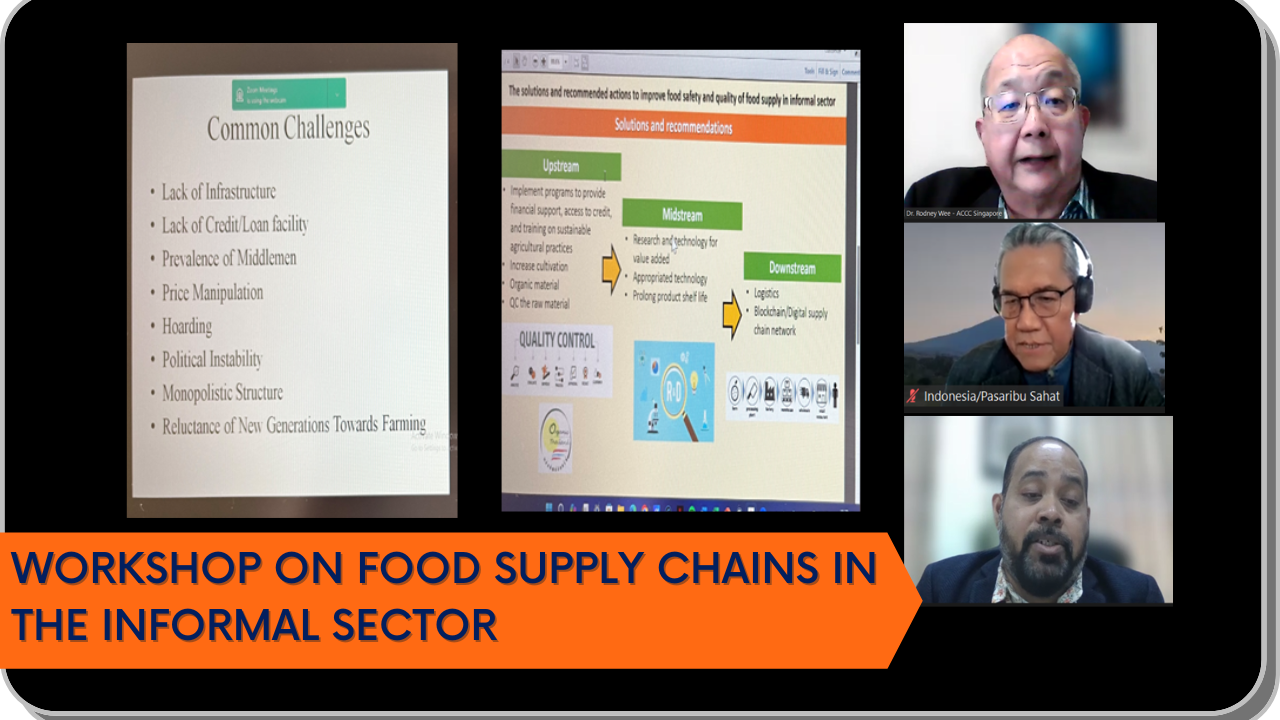
Select Page

To introduce methods and technologies for enhancing food quality, safety, and productivity among APO members, the National Productivity Organisation of Bangladesh held an online workshop on Food Supply Chains in the Informal Sector, 5–7 December. Participants explored strategies for increasing nutritional intake, managing health risks, and establishing resilient, sustainable food supply chains. The 48 participants from 14 member economies, including policymakers, representatives of small farmers’ and agribusiness associations, academics, and consultants specializing in food safety and quality control, shared good practices and models of informal-sector food supply chains across APO economies.
Informal food supply chains play a vital role in complementing formal-sector counterparts. The COVID-19 pandemic worsened food insecurity, especially in the producer-driven informal sector, heightening global food security challenges and increasing health risks. Developing countries face hurdles in ensuring food safety and quality control in informal food chains due to a lack of information, skills, limited resources, and weak cooperative work systems. The workshop, led by three resource persons from Bangladesh, Indonesia, and Singapore, explored the benefits of informal food chains, reviewed case studies on safety and quality control in informal food supply, and analyzed opportunities to improve APO members’ informal food supply chains.
A significant portion of Asia’s population relies on food sourced from informal-sector smallholder growers, who provide affordable food and contribute to rural incomes. Improving food safety and quality in the informal sector aligns with the SME Development and Broad-based Engagement goals outlined in the APO Vision 2025. The APO anticipates that workshop participants will apply the methods and technologies introduced to enhance food safety, quality, and productivity in the informal sector within their economies.